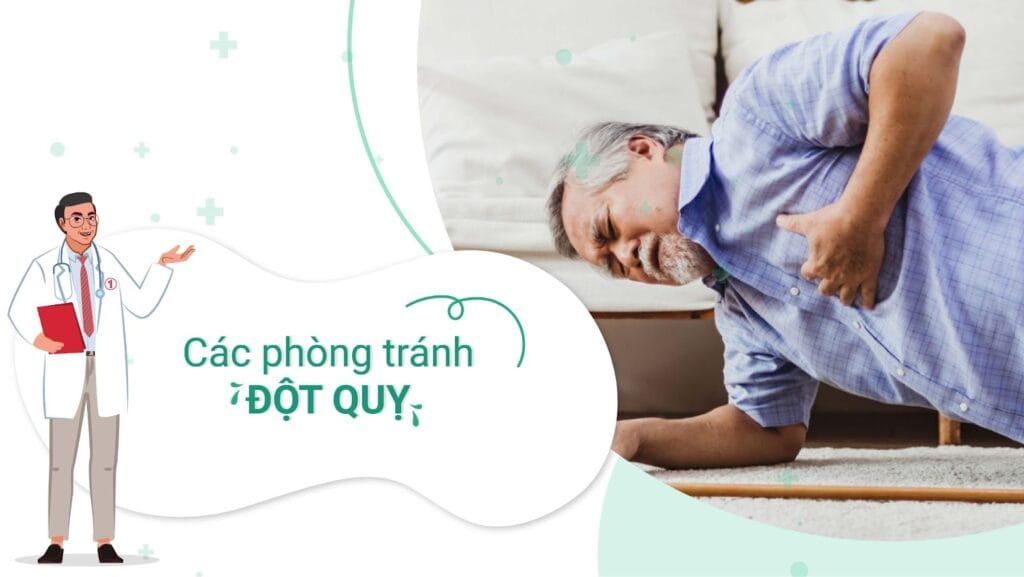Old age is already a time that requires careful care, but strokes affecting the elderly increase the risk and can turn any retirement plans into unfinished memories. This article will help you better understand this uninvited “guest” and equip you with more knowledge so that the elderly can protect themselves in their twilight years to be healthy and complete.
How stroke affects old age
As we age, our resistance decreases, our circulatory system weakens, and our sedentary lifestyle can easily lead to risks such as high blood pressure, diabetes, and cardiovascular disease. All of these create conditions for stroke to have a huge impact and “visit”. If unfortunately encountered, it can completely change the patient’s life and mental health.
Stroke affects physical and health of the elderly
Due to the many physical consequences that a stroke leaves behind, the elderly may lose the ability to care for themselves, reducing their quality of life.
Loss of ability to move independently: When having a stroke, the body will be paralyzed on one side or the whole body, this is one of the most common consequences, making it difficult for the patient to eat, move and do personal activities. All of these assistances require the help of family or medical staff.
Difficulty in communication: Due to damage to the areas of the brain related to language, many elderly people after a stroke have difficulty speaking and understanding language. This has a significant impact on their psychology and can easily lead to feelings of loneliness and depression.
Memory and cognitive decline: This is also one of the common effects of stroke in the elderly, making it difficult for the elderly to recognize relatives and do daily tasks, thereby reducing the quality of life and causing a burden on the family.
Psychological impact on stroke patients
It is difficult for anyone to have a calm mind when one day unfortunately a stroke strikes, the ability to be independent is lost and replaced by dependence on others. Therefore, it is not too difficult to understand why elderly people with strokes often have psychological changes and always have negative thoughts and emotions.
Depression: Also because of physical decline, loss of mobility, along with difficulties in communication can make the elderly feel depressed, lose hope and want to isolate themselves from society.
Anxiety and fear: It must be said that the impact of stroke on the elderly is one of the terrible diseases that brings the sufferer a painful experience, causing the patient to "give rise" to a feeling of anxiety about the risk of recurrence or worry about not being able to take care of themselves, having to become a burden to relatives and family.
Feeling worthless: When unable to be independent and completely dependent on others, the patient will feel worthless, the meaning of life is reduced and replaced by self-consciousness and guilt for becoming a burden to the family.
On the quality of life for family and society
The quality of life is significantly reduced when affected by a stroke for the elderly who face difficulties in daily activities, always needing help from family or professional caregivers, from simple activities such as bathing, changing clothes, going to the toilet. This is considered a big challenge for the elderly after a stroke.
Besides that difficulty, the cost of treatment is also a great concern for families with relatives who have had a stroke. Because the patient may have to undergo long-term rehabilitation therapy and frequent check-ups, leading to a significant increase in costs.
In addition, for the elderly, their ability to communicate will decrease after a stroke in the elderly, making it difficult to maintain social relationships. This leads to them feeling isolated and bored.
How to prevent stroke in the elderly
Although stroke is a dangerous condition and can strike at any time, the saying “prevention is better than cure” is still the most effective. If the elderly maintain a healthy lifestyle and always pay attention to their health, the possibility of stroke will always be at a minimum.

Accordingly, some ways the elderly can prevent stroke are extremely simple as follows:
- Blood pressure and cholesterol should be checked regularly, as high blood pressure and high cholesterol are leading risk factors for stroke. In addition, the elderly should also maintain a low-salt diet and limit foods high in saturated fat.
- A healthy diet, including plenty of green vegetables, fruits, whole grains and fatty fish, should be followed. Limiting salt, sugar and fried foods to control weight and blood pressure. These are important factors that help reduce the risk of stroke that the elderly need to pay attention to.
- Regular exercise improves blood circulation, reduces blood pressure and cholesterol effectively. Some gentle exercises such as walking, swimming, yoga, meditation are very suitable for the elderly to practice and maintain health.
- Quit smoking and drinking too much alcohol because these are unhealthy habits that affect the heart and can increase the risk of stroke in the elderly.
- Don't forget to have regular health check-ups, this is extremely important and necessary to effectively prevent stroke in the elderly by early detection of risk factors such as cardiovascular disease, diabetes and many other diseases.
In addition, the elderly can seek specialized care and nursing services. This will be an all-round method to both reduce the burden on family members and help the elderly receive comprehensive care, prevent strokes in the elderly, and bring them healthy and happy years in their twilight years.




